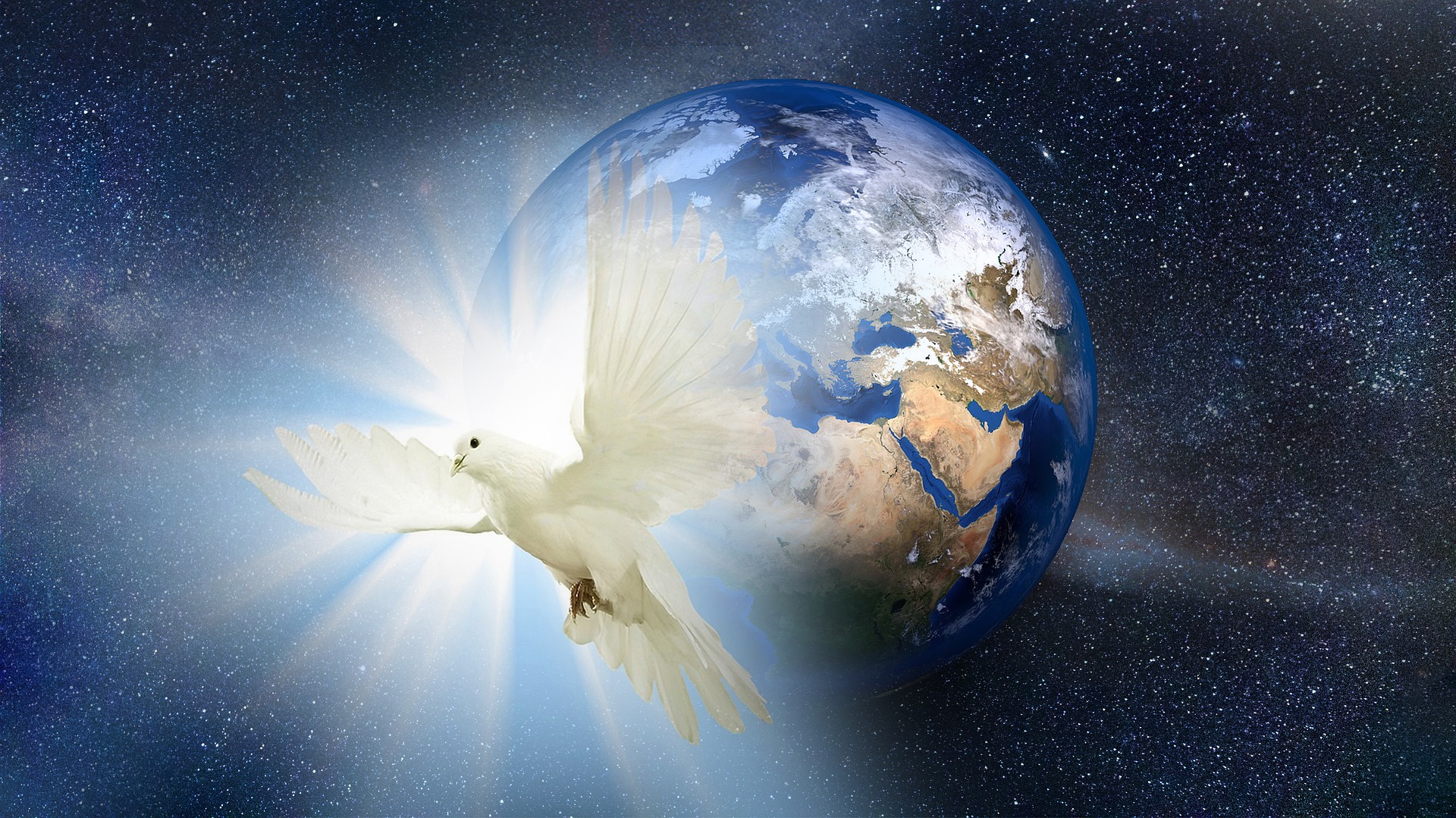 Submitted by Al Kamara El on
Submitted by Al Kamara El on

WE ARE ALL ONE, and as a reflection of that unity we need to integrate so that we can learn to look past our ideological differences. Whether we are atheist, Christian, Jewish, Muslim, Buddhist, left-wing, right-wing, liberal, neocon, fascist and/or Marxist, these belief systems are superficial compared to our shared humanity. Put various people together in an open democratic society and that shared humanity outshines ideological contrasts. The future is peaceful multiculturalism — and it is a bright future of shared humanity.
At least, that is the idealism being promoted in Western democracies by our media, our legal systems, teachers and many progressive thinkers. Of course there is nothing wrong with this sort of idealism, except that it does not reflect the real world. Idealism certainly birthed democracy, social liberty and, most importantly, freedom of speech, and it is the bedrock of civilisation. But idealism has to keep one foot in reality for it to be an effect agent for positive social change.
Today, the idealism of multiculturalism is causing problems because it is based on the false assumption that humanity's relationship to beliefs is identical, and so all belief systems are equivalent. In other words, we are all equally effected by contradictions and challenges to our beliefs, including our cultural and religious beliefs. This is relativism, and it equates all belief systems as equally valid. But this is not reflected in human psychology.
The ideal of multiculturalism is based on this type of relativism — this equivalence of the validity of belief systems. And as different belief systems are considered to be equally valid, the reasoning goes that they should be able to exist side by side with minimal conflict.
But this overlooks a vital component of belief systems: the believers themselves. How we believe beliefs is actually much more important than what we believe. If we are unconscious of our belief systems and largely confuse them with reality (a position known as fundamentalism), then we will not take too kindly to challenges to those belief systems. And as any contradicting belief system will be considered a challenge to our own, we will have a natural intolerance to other belief systems.
On the other hand, if we are conscious enough to recognise that our belief systems are belief systems and not confuse them with reality, we are likely to be far more tolerant towards those with contradictory belief systems. This relationship to believes shows a level of psychological maturity which recognises a separation between ourselves and our beliefs. If such a separation does not exist, however, any challenge to our beliefs will be taken as a challenge to ourselves, and so will be strongly resisted and rebuked.
In the multicultural ideal, the assumption is made that we can all be equally tolerant of each others' beliefs, that we all share the same level of psychological maturity. But on this planet right now there are people with Stone Age minds living right next door to people from the 21st Century post-modern world. And that is why multiculturalism does not work: the model does not reflect reality; relativism and fundamentalism cannot peacefully coexist.
That is not to say that there will be a social war between relativists and fundamentalists in the same society, because the truth is that most relativists will refuse even to see conflict. And in this way, the fundamentalists will usually have the upper hand in a relativist society that treats all beliefs as equal, because the intolerance of the fundamentalist will tolerated by the controlling relativists.
And if a government of a largely relativist culture makes the decision to accept a significant influx of fundamentalists, for even the best and most moral reasons, then that relativism is going to be jeopardised because fundamentalism abhors relativism, whereas relativism tries hard to accept fundamentalism. It doesn't matter how good or bad, moral or immoral those fundamentalists are, they will consciously or unconsciously seek to destroy the relativism of that society one way or another because it is a direct threat to their identity.
In this way, tolerance of intolerance ends up destroying tolerance, especially if the birth rate of those that are intolerant outstrips that of those that are tolerant. But as intolerance to outsiders is regarded as fascist or nationalist, and therefore associated with racism and other abhorrent separatist viewpoints, modern society will not allow itself even a healthy level of intolerance. So in the end, putting no limits on tolerance will end up eroding that tolerance itself. And at some point in the future, we will find ourselves living in an intolerant society.
Even writing these words feels uncomfortable to me as someone who abhors both nationalism and racism, but I have to follow the logic to its conclusion, and admit that unless tolerance has limits, it sows the seeds of its own destruction. We can learn from the yin-yang symbol which, although it separates out black and white, places a little spot of black in the centre of the white and vice versa. In this way, two opposing qualities or viewpoints can harmoniously coexist because they contain an aspect of each other. So tolerance must contain some intolerance for it to last, otherwise it will be too fragile for a modern world.
So if we want a viable multicultural future, we need to be intolerant to intolerance, and this means giving up the ideal of multiculturalism and accepting that, to harmoniously coexist, fundamentalist culture must be challenged and not tolerated. Otherwise, we jeopardise the very freedoms that allow multiculturalism to exist in the first place.
http://www.realitymaps.com/2016/08-tolerancetointolerance.html
- 593 reads